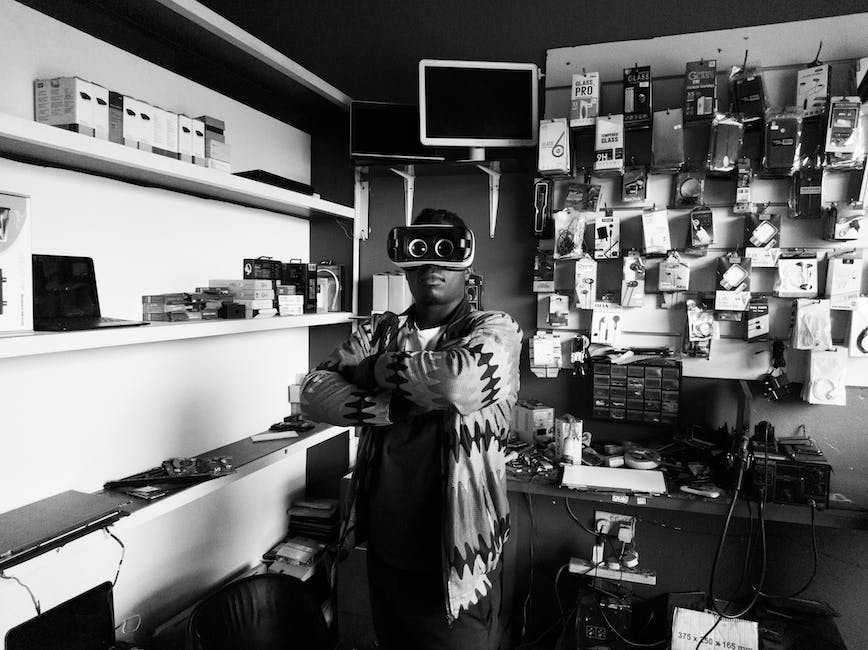Bespoke Customer Experience Software
What is Customer experience software?
Customer experience software, or cx software, is a specialized category of software that is designed to improve the overall experience customers have when interacting with a business. This type of software can be customized to meet the specific needs of a particular business, and it can be used in a wide range of different applications.Contact us if you are wanting to have a bespoke Customer Experience application developed?
One of the primary uses of customer experience software is to gather and analyze data on customer interactions. This information can include details on how customers interact with a website or other digital platform, as well as how they interact with customer service representatives or sales staff. By analyzing this data, businesses can gain insights into how best to improve the customer experience, and they can make targeted changes to their operations to address any issues that are identified.
Another key application of customer experience software is in streamlining the customer journey. This might involve using automated tools to guide customers through different stages of the purchasing process or providing personalized recommendations based on their browsing behavior. By making the customer journey as easy and seamless as possible, businesses can increase customer satisfaction and drive repeat business.
Finally, customer experience software can also be used to enhance customer communication and support. This might involve using chatbots or other automated tools to provide quick answers to customer inquiries, or it might involve offering proactive support throughout the customer journey to ensure that any issues are addressed before they become significant problems.
Overall, customer experience software is an essential tool for any business looking to improve the overall customer experience and build long-term customer loyalty. By customizing this software to meet their specific needs, businesses can make targeted improvements that have a significant impact on customer satisfaction and retention.

What are the main functions of Customer experience software?
Customer experience software typically consists of several modules that work together to provide an all-encompassing solution for businesses. Some of the main modules and their functionalities include:1. Customer Feedback Management - This module enables businesses to collect feedback from their customers via various channels such as surveys, feedback forms, social media, and chatbots. The software can also analyze the feedback data and provide insights into customer satisfaction and areas where improvements are required.
2. Customer Journey Mapping - This module allows businesses to map out the various touchpoints a customer has with their company across different channels and touchpoints. This helps businesses to identify areas where they can improve the customer experience and optimize their processes to create a more seamless experience for customers.
3. Omni-Channel Support - This module enables businesses to provide consistent support to customers across various channels, including email, social media, live chat, and phone. The software can also track customer interactions across these channels, ensuring that customers receive consistent and personalized service.
4. Customer Analytics - This module enables businesses to track and analyze customer behavior and preferences, providing insights into customer needs, preferences and behavior. This data can be used to personalize the customer experience and provide targeted marketing campaigns.
5. Voice of the Customer - This module collects and analyzes data related to customer perception of a business. It includes features such as sentiment analysis, word clouds, and topic analysis, which help businesses to understand how customers perceive their brand and where they need to improve.
6. Knowledge Management - This module enables businesses to create and manage a knowledge base to support customer self-service. The software can also provide access to customers via a chatbot or an automated voice system, which can help reduce customer wait times and improve customer satisfaction.
Overall, custom customer experience software provides a comprehensive solution that helps businesses to deliver a seamless, personalized experience to their customers.
Data / systems integration
Customer experience software data is often integrated with various other systems, including CRM, ERP, marketing automation, and social media platforms. This integration is typically accomplished through APIs that allow for seamless sharing of data between the different systems.Considerations for integrating customer experience software data include security, data privacy, and data ownership. It is important to ensure that the access to and sharing of data is secure and in compliance with applicable laws and regulations. Additionally, it is imperative that data ownership is clearly defined and agreed upon by all parties involved.
Another key consideration is the scalability of the integration. As businesses grow and new systems are added, it is important to have a flexible and scalable integration solution that can accommodate changes without disrupting the flow of data.
Overall, the integration of customer experience software data is essential for businesses looking to create a seamless and personalized customer experience across multiple touchpoints. By leveraging APIs and other integration tools, businesses can access valuable insights and data from various systems to improve customer engagement and drive business success.
Who uses Customer experience software?
Organizations in a variety of markets and verticals use customer experience software to enhance their customer service capabilities, increase customer satisfaction and loyalty, and drive business growth. These may include small businesses, mid-sized companies, and large enterprises in industries such as retail, healthcare, financial services, hospitality, telecommunications, and more. These organizations are typically those that place a high value on customer-centricity and seek to differentiate themselves from competitors by providing exceptional customer experiences. The size of the organization may vary, but the common thread is a commitment to delivering high-quality customer experiences that drive customer loyalty and retention.
Benefits of Customer experience software
Organisations use customer experience software to enhance customer satisfaction and loyalty, as well as to streamline business operations and increase revenue. The key benefits of implementing cx software include improving customer engagement and communication, gaining valuable insights into customer behavior and preferences, and increasing efficiency by automating certain processes like order tracking and support inquiries. Additionally, cx software can help businesses better understand and anticipate customer needs, personalize marketing and promotional efforts, and ultimately, build long-term relationships with customers. Ultimately, customer experience software is a critical tool for businesses looking to stay competitive in today's ever-evolving digital landscape.Some of the players in the Customer experience software market
1. ZendeskKey benefits: Zendesk is one of the most popular customer experience software brands and offers a wide range of features like ticketing, chat, and call center capabilities. The platform is known for its intuitive user interface, fast response times, and reliable customer support.
Shortcomings: Some users have reported that the platform can be expensive, especially for small businesses with limited budgets. Additionally, some customers have mentioned that the reporting features could be more robust.
2. Salesforce Service Cloud
Key benefits: Salesforce Service Cloud is a comprehensive customer service platform that offers features like live chat, call centers, and social media integration. The software is known for its powerful automation capabilities, which can help businesses streamline their customer service operations.
Shortcomings: Some users have reported that the software can be difficult to set up and customize. Additionally, some have mentioned that the platform can be a bit overwhelming for new users, and requires a significant amount of training to get up and running.
3. Freshdesk
Key benefits: Freshdesk is a popular CX software solution that offers features like ticketing, live chat, and social media integrations. The platform is known for its easy-to-use interface and customizable workflows.
Shortcomings: Some users have reported that the pricing structure can be confusing, and that the platform may not be the best option for larger businesses with complex CX needs. Additionally, some customers have mentioned that the reporting features are not as robust as they would like.
4. HubSpot
Key benefits: HubSpot is a popular all-in-one marketing and CX platform that offers features like live chat, CRM integrations, and reporting tools. The platform is known for its user-friendly interface and comprehensive feature set.
Shortcomings: Some users have reported that the platform can be expensive, especially for businesses with limited budgets. Additionally, some customers have mentioned that the reporting features could use more customization options.
5. Help Scout
Key benefits: Help Scout is a customer service platform that offers features like email integration, automated workflows, and reporting tools. The platform is known for its simplicity and ease of use.
Shortcomings: Some users have reported that the platform can be limited in terms of customization options, and that certain features may not be as robust as they would like. Additionally, some customers have mentioned that the pricing structure can be confusing.
Benefits of off-the-shelf Customer experience software
Off-the-shelf customer experience software provides business owners with access to pre-built features and functionalities that are designed to enhance the overall customer experience. This software often incorporates best practices in the field, allowing businesses to quickly implement proven solutions without the need for custom development. Additionally, off-the-shelf customer experience software is often more affordable than custom solutions, making it an attractive option for small and medium-sized businesses. Finally, many customer experience software providers offer ongoing support and updates to their products, ensuring that businesses can continue to improve their customer experience over time.Limitations of off-the-shelf Customer experience software
Off-the-shelf customer experience software can be a quick and convenient solution for businesses wanting to improve their customer experience. However, there are limitations to these types of software. One major limitation is that they are not tailored to the specific needs and requirements of a business.For example, an off-the-shelf customer experience software may not be able to integrate with a business's existing systems, which can result in data silos and inefficiencies. Additionally, the software may not have the necessary features or functionality to address the unique challenges and pain points of a business's customers.
Another limitation is that off-the-shelf customer experience software may not be customizable. Businesses are forced to use the software as it comes, without the ability to personalize it to their specific needs. This can result in a generic and impersonal customer experience, which can negatively impact customer satisfaction.
Finally, off-the-shelf customer experience software can become outdated quickly. As the market and customer preferences change, the software may not be able to keep up with the latest trends and technologies. This can result in a sub-par customer experience, which can lead to lost sales and revenue.
In conclusion, off-the-shelf customer experience software may be a quick and easy solution, but it has its limitations. For businesses looking to create a truly customized and personalized customer experience, bespoke software development may be the way to go.
Is bespoke Customer experience software a viable option?
Bespoke, or partially bespoke, customer experience software can bring a wide range of benefits to businesses. Firstly, it can provide a tailored solution that caters specifically to the unique needs of the business, ensuring that the customer experience is seamless and personalized.One successful use case of a bespoke customer experience software is in the hospitality industry. Restaurants and hotels have traditionally relied on generic booking and table management software, but by developing their own custom software, they have been able to create a more efficient and personalized experience for their customers. In particular, the software can be designed to integrate with other systems, such as loyalty programs or social media, allowing businesses to better engage with their customers and foster brand loyalty.
Another successful example is in the e-commerce space. Online retailers have found that by developing their own customer experience software, they are able to create a much more intuitive and streamlined online shopping experience. By tailoring the software to their business, they can create features such as product recommendations, personalized promotions, and streamlined checkout processes that encourage customers to complete their purchases.
Ultimately, the benefits of bespoke customer experience software are numerous. By developing a solution that is tailored to the unique needs of the business, companies can create a more personalized experience for their customers, increase efficiency, and foster brand loyalty.

Fun facts about Customer experience software
- According to a recent report by MarketsandMarkets, the CX Software market size is estimated to grow from USD 5.5 billion in 2020 to USD 14.9 billion by 2025.- A study by PwC found that 73% of consumers point to customer experience as an important factor in their purchasing decisions, indicating the necessity for businesses to invest in CX solutions.
- A report by Gartner predicts that by 2023, more than 50% of medium to large enterprises will have invested in CX technology and will have started to modernize key systems of engagement and commerce.
- AI-powered CX solutions are becoming increasingly popular, with a survey by Adobe finding that 53% of businesses plan to use AI to improve the customer experience.
- Another trend in CX software is the integration of omnichannel communication, allowing customers to interact with businesses through multiple channels seamlessly, such as social media, email, chatbots, and phone.
- CX software can help businesses improve customer loyalty and retention, with Temkin Group reporting that companies earning $1 billion annually can expect to earn an additional $700 million within three years of investing in CX.
- According to a survey by Salesforce, 78% of consumers say that personalized experiences from retailers have increased their loyalty to the brand. CX software can help businesses achieve this personalization by tracking and analyzing customer data.
Customer experience software FAQ
1) What is customer experience software and how can it benefit my business?Customer experience software is a customized tool for businesses to manage their interactions with customers across various channels like email, chat, social media, etc. It can help businesses improve customer satisfaction, identify patterns in customer behavior, and personalize customer experience. With the help of customer experience software, businesses can streamline their customer service process, respond to inquiries more efficiently, and proactively address customer grievances before they escalate.
2) How long does it take to develop a custom customer experience software?
The time taken to develop a custom customer experience software depends on the complexity of the project and the scope of work involved. Generally, it can take several weeks or months to build a customized solution that caters to your specific business requirements. Companies need to consider factors like planning, design, development, testing, and deployment when estimating the timeline for a custom software development project.
3) How do I determine the cost of developing a custom customer experience software?
There is no fixed cost for developing custom software, as it varies based on the scope of the project, the expertise of the development team, and the complexity of the features required. To determine the cost of developing a custom CX software, companies need to consider the number of features, hours required for development, and other factors like infrastructure and maintenance costs.
4) How does custom customer experience software compare to off-the-shelf software?
Off-the-shelf customer experience software solutions cannot cater to the specific needs of your business like custom CX software can. With custom software, businesses can tailor the solution to meet their exact requirements, ensuring that all customer interactions are streamlined to drive better customer engagement and generate more significant revenue growth.
5) How can I ensure that the custom customer experience software meets my business needs?
To ensure that the custom customer experience software meets your business needs, businesses should work closely with the developers and provide detailed requirements for the solution. They should also provide feedback throughout the development process, which will allow developers to make adjustments and refine the software accordingly.
6) Will I need to train my staff to use the custom customer experience software?
Yes, staff training is an integral part of the successful implementation of customer experience software. The developers should provide training and support to ensure that all employees understand how to maximize the benefits of the software.
7) How can I measure the success of my custom customer experience software?
To measure the success of custom customer experience software, companies need to track performance metrics like customer engagement, satisfaction levels, and revenue growth. Businesses can also obtain feedback from customers on how they are finding the experience and make adjustments based on that feedback to tailor the software further.
Next Steps?
Attention Business Owners: Are you looking for a way to enhance your customer experience? Do you want to have a competitive edge in the market? Look no further! Our bespoke customer experience software is what you need to take your business above and beyond.Our team of experts in cx software understands what it takes to make lasting impressions on customers. We have developed custom software solutions for a range of businesses, from small startups to larger corporations. Our software is designed with the end-user in mind, making it easy to use and navigate for both you and your customers.
With our software, you will have access to real-time insights and data analysis that will enable you to make well-informed business decisions. Our software is highly customizable, enabling you to tailor it to suit the unique needs of your business.
We understand that integrating new software into your business systems can be challenging. Our team will work with you to ensure a seamless transition and provide ongoing support to ensure your software runs smoothly.
Don't wait any longer! Contact us today and let us help you elevate your customer experience. Our team is ready and waiting to develop the perfect bespoke customer experience software solution for your business.
Read more about the main software category Collaboration Applications.
Other services in Collaboration Applications category:
Want a quick quote for the development of custom Customer Experience Application?
Contact us to discuss your questions about bespoke Customer Experience Applications.
